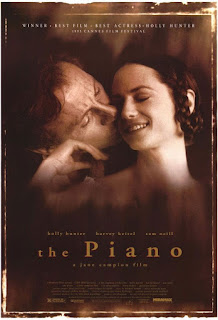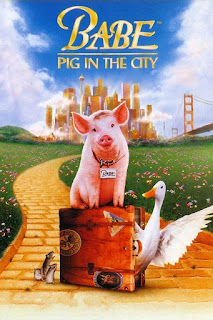April 5th: LITTLE MURDERS (Alan Arkin, 1971)
NOTE: This film is out of print and is no longer available on DVD.

A misanthropic photographer is bullied into a relationship by an unflappable optimist who makes it her mission to help him enjoy life.
Jules Feiffer is a Pulitzer Prize-winning cartoonist, author and playwright. His work became increasingly politicized as the tumultuous 1960s unfolded. Little Murders, his first produced play, lasted only 7 performances New York but fared better in London, and revived Off-Broadway two years later to great reviews and a successful run, winning him an Obie award.
The play's lead actor, Elliot Gould, already a rising film star, spearheaded bringing the play to the screen, apparently asking French New Wave icon Jean-Luc Godard to direct. Eventually Gould offered the job to fellow actor Alan Arkin (Little Miss Sunshine, Catch-22). Gould reprised his role, bringing along some of his other cast members, including screen actor Vincent Gardenia (Little Shop of Horrors, Moonstruck) and Elizabeth Wilson. Arkin himself takes a small role as a highly-strung police detective, and Donald Sutherland (M*A*S*H, Ordinary People) plays a psychedelic minister.
The screenplay, also by Feiffer, reflects the tumultuous nature of the social upheavals in the late 60s-early 70s, with a healthy dose of paranoia specific to New York City at the time, including energy shortages, sanitation worker strikes, racial tension, rampant muggings and random killings. It was expanded from its primary setting in a single apartment to encompass various outdoor scenes as well as road trips to the Catskills and Chicago.
Behind the camera is cinematographer Gordon Willis, a year away from his seminal work on The Godfather and a subsequent decade- long collaboration with Woody Allen. The direction and images seem inspired at times by The Graduate (1967), and in turn its portrait of a neurotic romance was likely an influence on the Allen's peak period from the late 1970's, specifically Annie Hall.
The hard-to-categorize film was released to little fanfare and despite good reviews, was not a box office success. It received a nomination from the Writer's Guild, but perhaps its highest praise came from legendary French director Jean Renoir, who said "This film will never be forgotten".
Running time is approx. 110 minutes.

A misanthropic photographer is bullied into a relationship by an unflappable optimist who makes it her mission to help him enjoy life.
Jules Feiffer is a Pulitzer Prize-winning cartoonist, author and playwright. His work became increasingly politicized as the tumultuous 1960s unfolded. Little Murders, his first produced play, lasted only 7 performances New York but fared better in London, and revived Off-Broadway two years later to great reviews and a successful run, winning him an Obie award.
The play's lead actor, Elliot Gould, already a rising film star, spearheaded bringing the play to the screen, apparently asking French New Wave icon Jean-Luc Godard to direct. Eventually Gould offered the job to fellow actor Alan Arkin (Little Miss Sunshine, Catch-22). Gould reprised his role, bringing along some of his other cast members, including screen actor Vincent Gardenia (Little Shop of Horrors, Moonstruck) and Elizabeth Wilson. Arkin himself takes a small role as a highly-strung police detective, and Donald Sutherland (M*A*S*H, Ordinary People) plays a psychedelic minister.
The screenplay, also by Feiffer, reflects the tumultuous nature of the social upheavals in the late 60s-early 70s, with a healthy dose of paranoia specific to New York City at the time, including energy shortages, sanitation worker strikes, racial tension, rampant muggings and random killings. It was expanded from its primary setting in a single apartment to encompass various outdoor scenes as well as road trips to the Catskills and Chicago.
Behind the camera is cinematographer Gordon Willis, a year away from his seminal work on The Godfather and a subsequent decade- long collaboration with Woody Allen. The direction and images seem inspired at times by The Graduate (1967), and in turn its portrait of a neurotic romance was likely an influence on the Allen's peak period from the late 1970's, specifically Annie Hall.
The hard-to-categorize film was released to little fanfare and despite good reviews, was not a box office success. It received a nomination from the Writer's Guild, but perhaps its highest praise came from legendary French director Jean Renoir, who said "This film will never be forgotten".
Running time is approx. 110 minutes.








Comments
Post a Comment